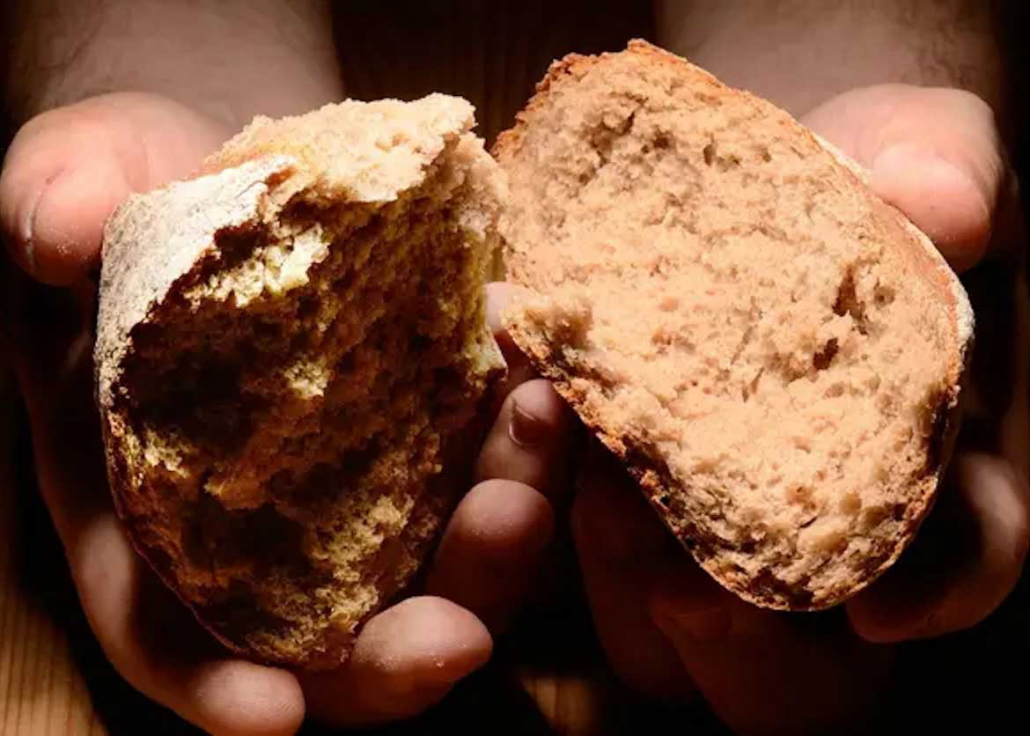Image: Supplied
‘Let us become what we receive’
Rev. Nicole Fleming
Ordinary Sunday 20, Year B
John 6:51-58
Sara Miles used to describe herself as a “left-wing, atheist, American lesbian” who loved to feed people. Sara had never been to a church and didn’t think there was a place for her in the church. In fact, she hadn’t even bothered considering if there was a place for her – she didn’t care. On her morning walk one Sunday morning she decided to walk into her local church where she promptly found herself participating in the Eucharistic meal being offered.
This was the beginning of her conversion – her step toward belief.
In her book Take This Bread Miles writes: “Eating Jesus, as I did that day to my great astonishment, led me against all my expectations to a faith I’d scorned and work I’d never imagined. The mysterious sacrament turned out to be not a symbolic wafer at all but actual food – indeed, the bread of life.
“In that shocking moment of communions, filled with a deep desire to reach for and become part of the body, I realized that what I’d been doing with my life all along was what I was meant to do: feed people.”
The gospel reading today offers some fairly gruesome images – eating flesh, drinking blood. Jesus is in the mode of provocateur. He’s even aware he may have offended the disciples. Of course, Jesus is speaking in this direct way on purpose. He’s using graphic images on purpose. He’s speaking with people for whom food wasn’t always easy to find. Access to food was a central survival issue for the crowd gathered.
At the very start of this story, Jesus provides food – physical food – to those gathered. The section of the passage we read today is part of the wider story – “bread – real bread as food, the material basis of life – mattered to Jesus” (Marcus Borg).
As we’ve heard the story shift over intervening weeks, we learn that “bread – real bread – is central to the coming of the kindom of God” (Borg).
Jesus tells them not to work for the food that perishes, but instead perform the works of God that lead to eternal life. “For the bread of life is the One who comes down from heaven and gives life to the world.”
Not only is Jesus a gifted teacher and compassionate healer, he is also our “bread”. He is bread come down from heaven. He is flesh that is to be eaten, blood to be drunk. “If we are to think about the Word made flesh, we must think through ingestion, consumption, and intimate, deep engagement. Incarnation means that we must get up, come forward, hold out our empty hands, sip wine, chew bread.”
Echoes of Eucharist – the meal of thanksgiving – ring throughout this passage. “Those who eat my flesh and drink my blood abide in me, and I in them,” Jesus says. We must “receive what we are and become what we receive – the body of Christ.”
At this time, we cannot share the Eucharist meal in the way we may like to. We wait for that meal – for those symbols of flesh and blood in our hands – in our mouths – in our communion with each other.
We might lament that we cannot re-member Christ in that way at this time.
We can, though, remember the small boy from the start of this chapter, who offers his simple food – bread and fish. We can remember Jesus giving thanks for that food, breaking it and distributing that food. We can remember that there was more than enough to share.
We can remember the boy, and what Andrew said a couple of weeks ago: “If [the boy] had not offered his lunch to share, there’d have been no meal, no sign. [The boy] shows us what Jesus expects of us. That when we give – and we do have something to give – we receive, we are filled with the fullness of God. Jesus says: ‘I am the bread. Eat and receive nourishment, become what you receive’” (Andrew Collis).
Sara Miles ate bread and fed people.
She took communion, passed the bread to others, and then kept going. She was compelled to find new ways to share what she’d experienced. She started a food pantry and gave away literally tons of fruit and vegetables and cereal around that same altar where she first received the body of Christ.
She received bread – she became what she received with that community – the body of Christ.
As you take time to reflect today, take time to look at your hands and imagine what “bread” you might offer as you become what you receive with this community – the body of Christ, the bread of life. Amen.




